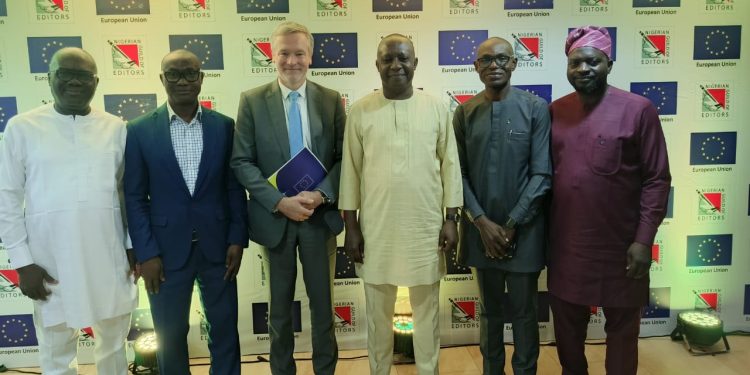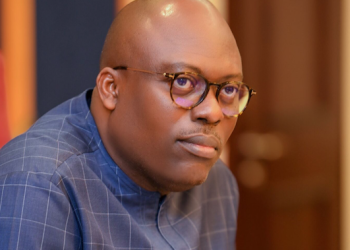*As EU, NGE task media professionals on misinformation, disinformation
Nigerian editors have agreed to set up Fact-Check Desk in their various newsrooms as a measure to tackle fake news, misinformation and disinformation.
Rising from a workshop organised by the European Union (EU) in collaboration with the Nigerian Guild of Editors (NGE) in Lagos on Friday, the editors said that having Fact-Check Desk would help media organizations verify news hints, with the view to publishing only accurate and verified information.
Other key decisions taken at the end of the workshop include the need for media organizations to organise trainings for their newsroom managers and line editors on fact-checking.
They also agreed that the Guild should set up Disinformation Counter Groups across its zonal structures, ahead of 2027 general election.
They also resolved on the need for media organizations to collaborate and reach out to each other to verify information.
The conference also urged media organizations to constantly assess at the quality of their Online Editors to ensure that experienced and well grounded journalist man the position.
The Guild in its quest to improve outcomes, recommended the use of other of its bigger platforms to address issues bordering on fake news, misinformation and disinformation.
Speaking earlier at the workshop, the EU Ambassador to Nigeria and ECOWAS, Mr. Mignot and the NGE President, Mr. Eze Anaba, said that newsroom managers should acquire the skills and tools for fact-checking as a way to arresting fake news, misinformation and disinformation.
Mignot in particular said that the EU was taking a multi-pronged approach to address the threats posed by misleading information, which he described as a “danger to democracy and public trust.”
According to him, “The European Union is actively working to combat disinformation and promote media literacy, with fact-checking playing a crucial role in these efforts.
Citing a July 2024 European Parliament Report, Mignot noted that 85 per cent of people globally worry about disinformation’s impact, while 38 per cent of EU citizens now see it as a threat to democracy.
He drew attention to Nigeria’s unique challenges, referencing a 2020 report by the Centre for Democracy and Development (CDD), warning that disinformation had exacerbated long-standing ethnic and religious tensions in the country.
Other interventions cited by the ambassador include direct training support for Nigerian journalists, including visits to Europe and Ukraine, and active engagement with students and civil society organisations.
In his welcome remarks at the workshop, President of the Nigerian Guild of Editors,
Anaba, described the workshop as timely and critical, while highlighting the dangers of fake news and misinformation.
The EU/NGE workshop for editors had two resources person: Three topics were treated at the program by Mr. Azu Isiekwene, Senior Vice Chairman/Editor-in-Chief, LEADERSHIP Newspapers and Dr. David Ajikobi, Executive Director, Africa Check.
The resource persons treated such topics as: “Principles of Fact-Checking: Understanding the Role of Editors in Fact-checking And the Principles of Accuracy, Fairness, and Transparency;” Identifying Misinformation and Disinformation: Analyzing Examples of Misinformation, Desinformation and Fake News” and “Fact-Checking Tools and Resources: Overview of Fact-checking Tools; Analyzing Complex Fact-checking Scenarios.”








